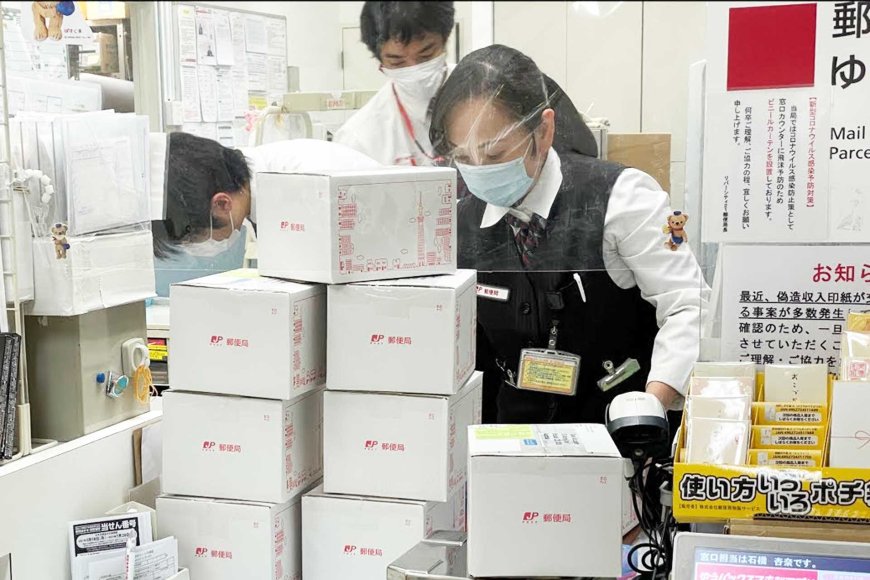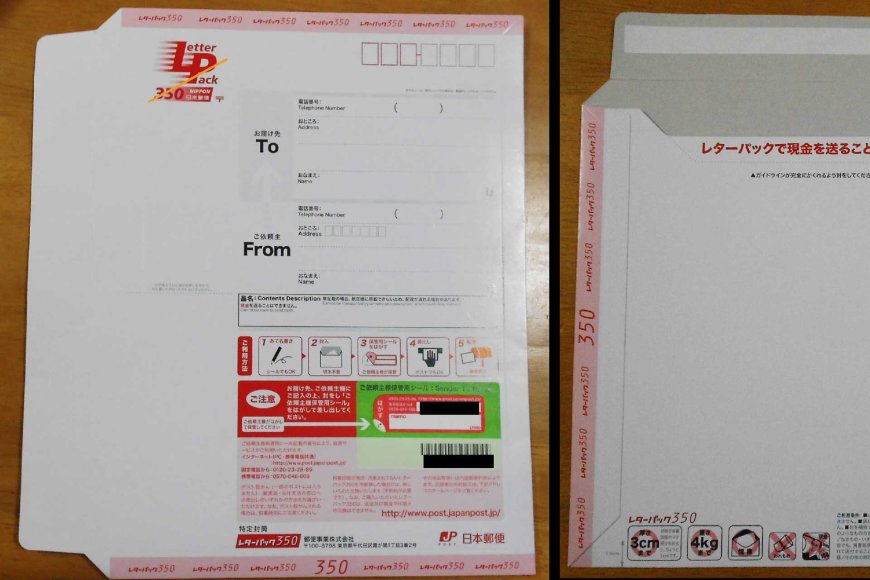Price Hikes and Economic Shifts: October Brings Major Changes to Japan
Japan is bracing for a new wave of price increases this October, with postal services, food, and beverages seeing significant surges. Alongside these hikes, changes in minimum wage and expanded child allowances aim to mitigate the economic impact on households.

The Mail and Logistics Sector: A 30-Year Wait for Rate Increases
Japan is set to experience another wave of price hikes in October 2024, impacting various aspects of daily life. Among the changes, one of the most significant involves a substantial increase in postal service fees. For the first time in 30 years, Japan Post Co. will raise its rates for standard mail, postcards, and its popular Letter Pack services. This is a notable development, as the company has only increased prices in the past to adjust for consumption tax hikes.
For standard-sized sealed letters weighing up to 25 grams, the fee will rise from 84 yen to 110 yen (58 cents to 76 cents). Similarly, the cost of mailing postcards will jump from 63 yen to 85 yen (44 cents to 59 cents). These changes will affect not only personal correspondences but also businesses reliant on mail for communication and marketing purposes.

In addition, Japan Post’s flat-rate service, Letter Pack, will see increases as well. The "Letter Pack Light," which allows A4-sized packages weighing up to 4 kilograms to be delivered to mailboxes, will rise from 370 yen to 430 yen (about $2.57 to $2.98). The face-to-face delivery option, "Letter Pack Plus," will increase from 520 yen to 600 yen (roughly $3.61 to $4.16).
The rationale behind these increases is largely driven by economic factors that have transformed Japan’s logistical landscape. A notable decline in the use of physical mail due to the rise of email and social media, combined with escalating personnel and fuel costs, have rendered the current pricing unsustainable for Japan Post. This adjustment aims to keep the postal service financially viable while adapting to evolving consumer behaviors.

Food and Beverage Price Surges: A Continuation of Inflation
In addition to postal fees, consumers in Japan will also face significant increases in the prices of food and beverage products. Major beverage companies, including Kirin Beverage Co., Asahi Soft Drinks Co., Suntory Beverage & Food Ltd., Coca-Cola Bottlers Japan Inc., and Ito En Ltd., have announced that they will be raising their suggested retail prices. Some products will see a price increase of more than 30%, starting with shipments on October 1.
The price hikes are primarily attributed to several external factors, such as the increasing cost of raw materials and packaging. The weak yen has further exacerbated the situation, making imports of these materials more expensive. Additionally, rising labor and logistics costs have added to the financial strain faced by these companies.

Popular snack brands are also not immune to this surge. Kameda Seika Co. is planning to raise the prices of its well-known snacks, such as "Happy Turn" and "Potapota Yaki," by 9% to 22%. Similarly, Koike-ya Inc., another major snack producer, will increase the prices of its flagship potato chips and other items by 4% to 14%. Additionally, NH Foods Ltd., Marudai Food Co., and Itoham Foods Inc. will raise the prices of their hams and sausages by up to 20%.
Although this marks the first significant "price hike rush" since April, the overall number of price increases in 2024 is still lower compared to the sharp inflation seen in 2022 and 2023. According to Teikoku Databank Ltd., around 3,000 food items are expected to face higher prices in October, making it one of the most impactful months for consumer price adjustments this year.

Minimum Wage Boost and Child Allowances: Easing the Burden on Families
In the face of rising prices, the Japanese government is implementing several policy changes to help alleviate some of the financial strain on households. One of the most significant measures is the increase in the minimum wage, which will rise by 51 yen (around 35 cents) to 1,055 yen (roughly $7.32) on a national weighted average. This marks a significant step towards improving income standards in Japan, particularly for workers in lower-paying sectors.
However, despite the increase in the minimum wage, Japan still lags behind many developed countries in terms of hourly pay. The wage boost may help offset some of the inflationary pressures, but it is unlikely to fully cover the rise in living costs, particularly in urban areas where expenses are higher. This has raised concerns about the adequacy of the wage increase in addressing economic disparities across the country.
Another crucial change involves the expansion of child allowances. Starting in October, the Japanese government will eliminate income caps on child allowances, making more families eligible for financial support. This move is part of the government's broader efforts to combat Japan's declining birth rate by providing greater economic stability for families. By offering more equitable access to child allowances, the government hopes to encourage families to have more children and reduce the economic pressures of child-rearing.

The Broader Economic Picture: Navigating Through Inflation and Uncertainty
Japan's upcoming price increases and policy changes reflect the broader economic challenges that the country is currently facing. The weak yen, rising costs of raw materials, and higher logistical and labor expenses have created a difficult environment for both businesses and consumers. As companies adjust their pricing strategies to cope with these challenges, consumers are left to navigate a landscape where the cost of living is steadily rising.
While the increase in minimum wage and expanded child allowances are positive developments, they may not be enough to fully counteract the impact of inflation. Many households, particularly those with lower incomes, may continue to struggle with higher costs for essentials like food, beverages, and postal services.
October 2024 is shaping up to be a pivotal month for Japan, as price hikes take effect across various sectors and policy changes aim to ease some of the financial burden on citizens. However, the long-term effects of these changes remain to be seen, as Japan continues to grapple with the complexities of inflation, economic disparity, and demographic challenges.
Find Cheap Flight Tickets to any Destinations in Japan and the Philippines
Nipino.com is committed to providing you with accurate and genuine content. Let us know your opinion by clicking HERE.































































